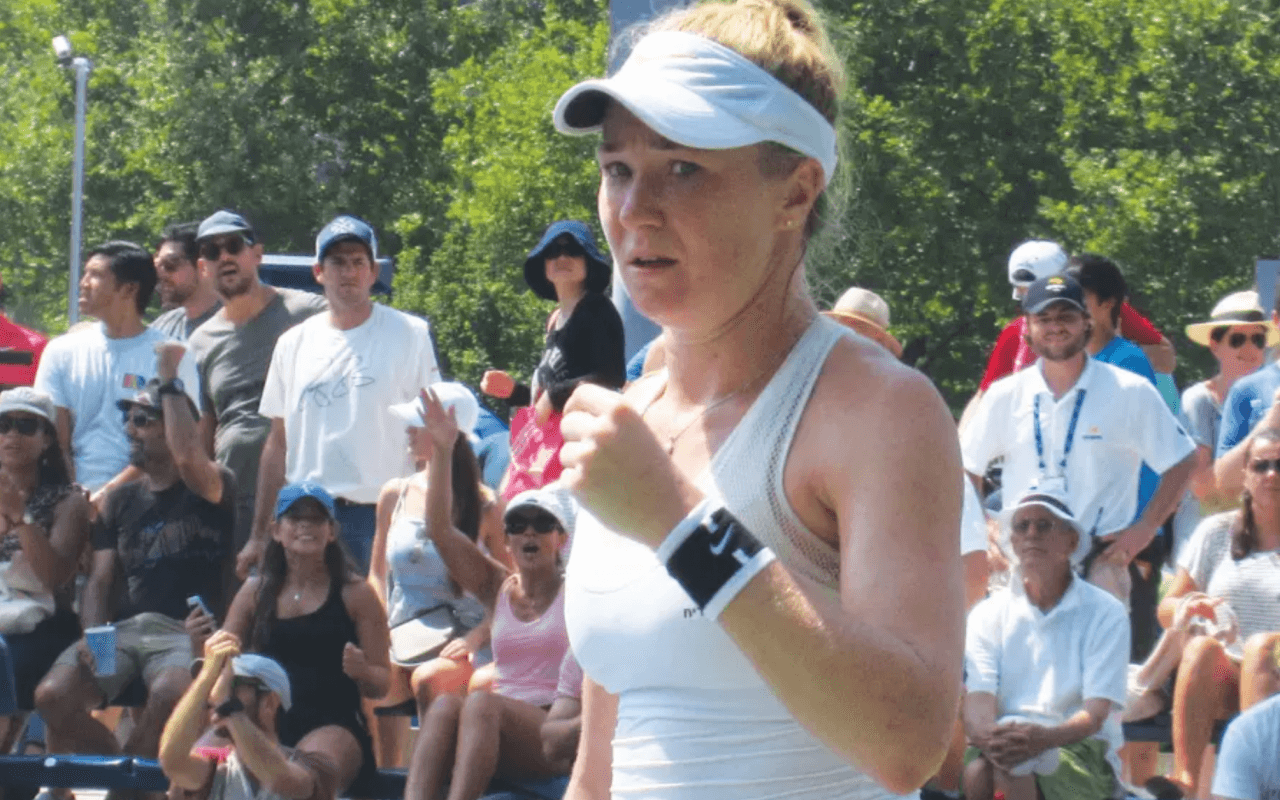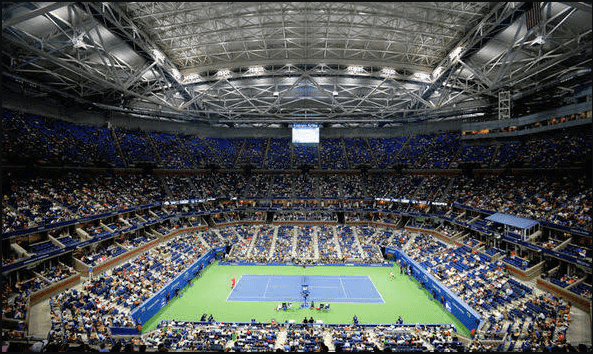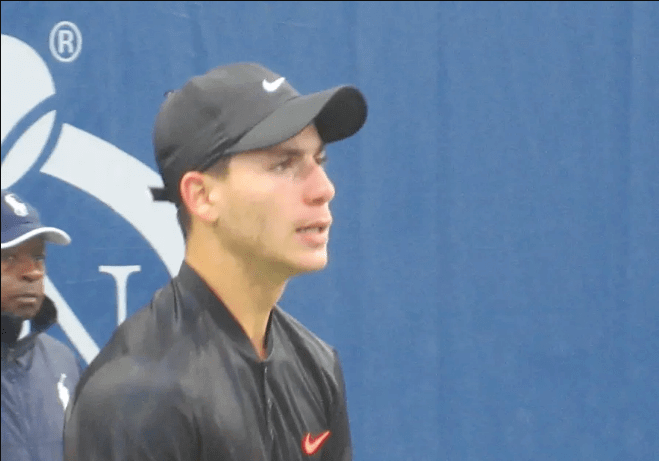Original Article in The Jerusalem Post:
How well do admiring Israel tennis fans know Julie Glushko on and off the court?
The night before beating Romanian Monica Niculescu in the US Open first round, the 29-year-old Israeli sat in the player garden and spoke with The Jerusalem Post about tennis and non-tennis matters as she ate her sushi dinner. Glushko next takes on No. 20 Naomi Osaka of Japan in the second round on Thursday.
JP: What did you do on your days off after winning the qualifiers?
JG: I didn’t do too much for fun this time. I have been resting a lot. Eating – that’s fun actually – and sleeping. Practicing as well!
JP: Any superstitions, rituals, prayers or special food as you prepare for a match?
JG: I do not (laughing). No superstitions. I listen to music. I do stuff to relax but I try not to have superstitions because if it doesn’t happen or go the way I want to, I don’t want to be freaking out.
JP: Favorite Israeli food?
JG: Is malawah Israeli? Jachnun and malawah!
JP: Favorite beach in Israel?
JG: I just always go to the Hilton. Also Beit Yanai – it is a little bit north, next to Caesarea – is very nice.
JP: Favorite city in Israel?
JG: Tel Aviv
JP: Favorite world city?
JG: New York and Melbourne. They are very different, actually. New York is just so alive, it’s crazy, it has so much character. There are so many things going on. And you can find anything you want – except a beach!
And Melbourne – I just love Australia. I love the vibe too. It is the opposite of New York. It is more relaxing and people are more chilled out.
JP: Do you have a favorite Israeli singer or group?
JG: I like Omer Adam. I like Static and Ben El Tavori
JP: What is your routine after a match, after everyone leaves you alone and stops taking selfies and asking for autographs?
JG: Shower, ice bath, shower again because I am cold. I’ll take my protein shake then I’ll go eat after I shower, to give body the nutrition it needs, then go see a physiotherapist. It probably takes me between two-and-a-half to three-and-a-half hours to get out of the facility.
JP: Are there other players you have become good friends with?
JG: Yeah, some girls I am friends with. I think I am friendly with most of the girls, actually. Definitely saying hello to most of the girls on the tour.
JP: Do they ever ask you about Israel? Are they curious?
JG: Some people think that what they see on TV is Israel, which it is not. They ask me if it is safe to go over there, if it is nice. I just wish we had some tournaments so people could see that it is actually super safe and nice to be there.



